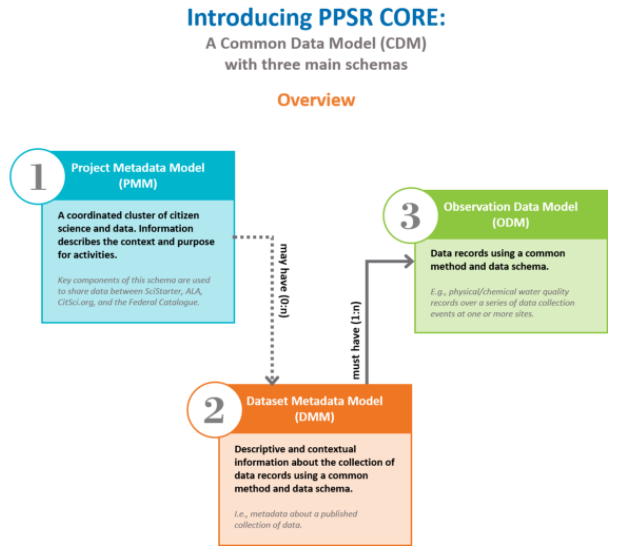Why is it relevant?
Citizen Observatories generate data that need to be managed in a way that allows for discovering and accessing but also preserving and curating it. Good data management principles and practices maximise the value and benefit of data by ensuring that data remain robust, useful, up to date, understandable and long-lasting for our research purposes and for future uses. This will ensure that data from different origins and types can be integrated into scientific models and eventually generate applications to derive decision support tools.
How can this be done?
You can adopt a set of data management principles for your Citizen Observatory, such as those developed and adopted by GEOSS, to enhance discoverability, accessibility, usability, curation and secure preservation of the data. This involves the elaboration of a data management plan – a time-consuming process that forces you to anticipate required practices and to recognise the need to plan for the resources to put the plan into practice. Below you can find a set of data management principles and practices that will help you to manage your data in the most effective and appropriate way.
Useful Resources
PRINCIPLES: The GEOSS Data Management Principles build on the GEOSS Data Sharing Principles in the sense that they adumbrate what is required in terms of data management to allow data to be promptly shared as Open Data.
TOOL: The DMP Tool is a free, open-source, online application that helps researchers create data management plans.
TOOL: DMPOnline: The DMP Roadmap helps you to create, review and share data management plans that meet institutional and funder requirements. It is provided by the Digital Curation Centre (DCC).
TOOL: ARGOS is an open service that simplifies the creation, management, validation, monitoring and maintenance of Data Management Plans.
TOOL: easyDMP is a web-service that allows a user to create, share and manage data management plans by guiding the researcher through a set of questions tailored to the recommendations of different funding agencies and research authorities. The resulting document can then be attached to the users proposal.
SCIENTIFIC PAPER: The paper “Citizen Science 2.0: Data Management Principles to Harness the Power of the Crowd” addresses the challenges for engaging citizen scientist in the context of research projects.
SCIENTIFIC PAPER: The “Study on the Data Management of Citizen Science: From the Data Life Cycle Perspective”, Data and Information Management” analyses the lifecycle and data management processes of over 1000 citizen science and Citizen Observatory projects, identifying common themes and best practices.
SCIENTIFIC PAPER: The Advice Note 1 from UKEOF’s series of Data Advice Notes highlights the principles of good data and information management, and suggests policies and procedures for data managers.
STANDARD: The Data Standard for Public Participation in Scientific Research (PPSR Core) is a set of global, transdisciplinary data and metadata standards for use in Public Participation in Scientific Research (Citizen Science) projects. PPSR Core is maintained by the Citizen Science Association (citizenscience.org) working group for Data & Metadata.
You may also be interested in:
This work by parties of the WeObserve consortium is licensed under a Creative Commons Attribution-ShareAlike 4.0 International License. ![]()


